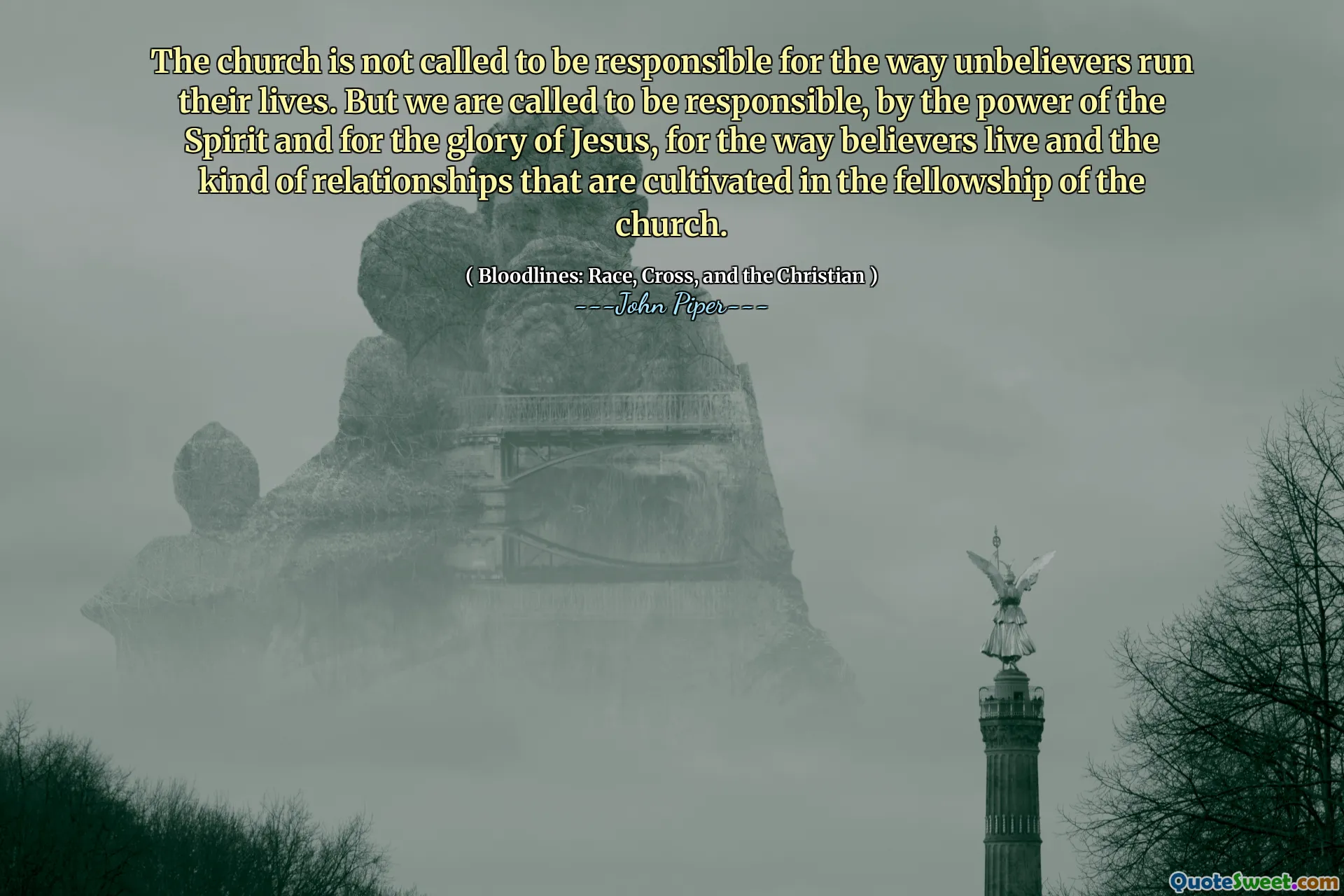
The church is not called to be responsible for the way unbelievers run their lives. But we are called to be responsible, by the power of the Spirit and for the glory of Jesus, for the way believers live and the kind of relationships that are cultivated in the fellowship of the church.
This quote underscores a vital aspect of the Christian community's focus and responsibility. It emphasizes the distinction between the secular world and the church's spiritual responsibilities. The church's role is not to judge or control how those outside the faith choose to live their lives; instead, its primary responsibility is to nurture and exemplify a Christ-centered lifestyle within its community. This nurturing involves living by the Spirit's power, which transforms individuals from the inside out and fosters authentic relationships rooted in love, humility, and grace. When the church dedicates itself to cultivating such relationships—where forgiveness, accountability, and genuine care flourish—it becomes a powerful witness to the world about the transformative power of Jesus. This responsibility is rooted in the pursuit of God's glory rather than societal control or condemnation. It calls believers to establish a community where spiritual growth and relational integrity are paramount, understanding that their collective witness is more impactful when they embody the values of the Gospel first and foremost. Ultimately, this focus encourages humility, recognizing that change starts within the community and that the church's mission is to be a radiant reflection of Christ's love, drawing others towards His grace. This perspective offers a balanced approach—embracing the responsibility for the cultivation of Christian character and community, while leaving the affairs of those outside its fellowship to God's sovereign rule.






